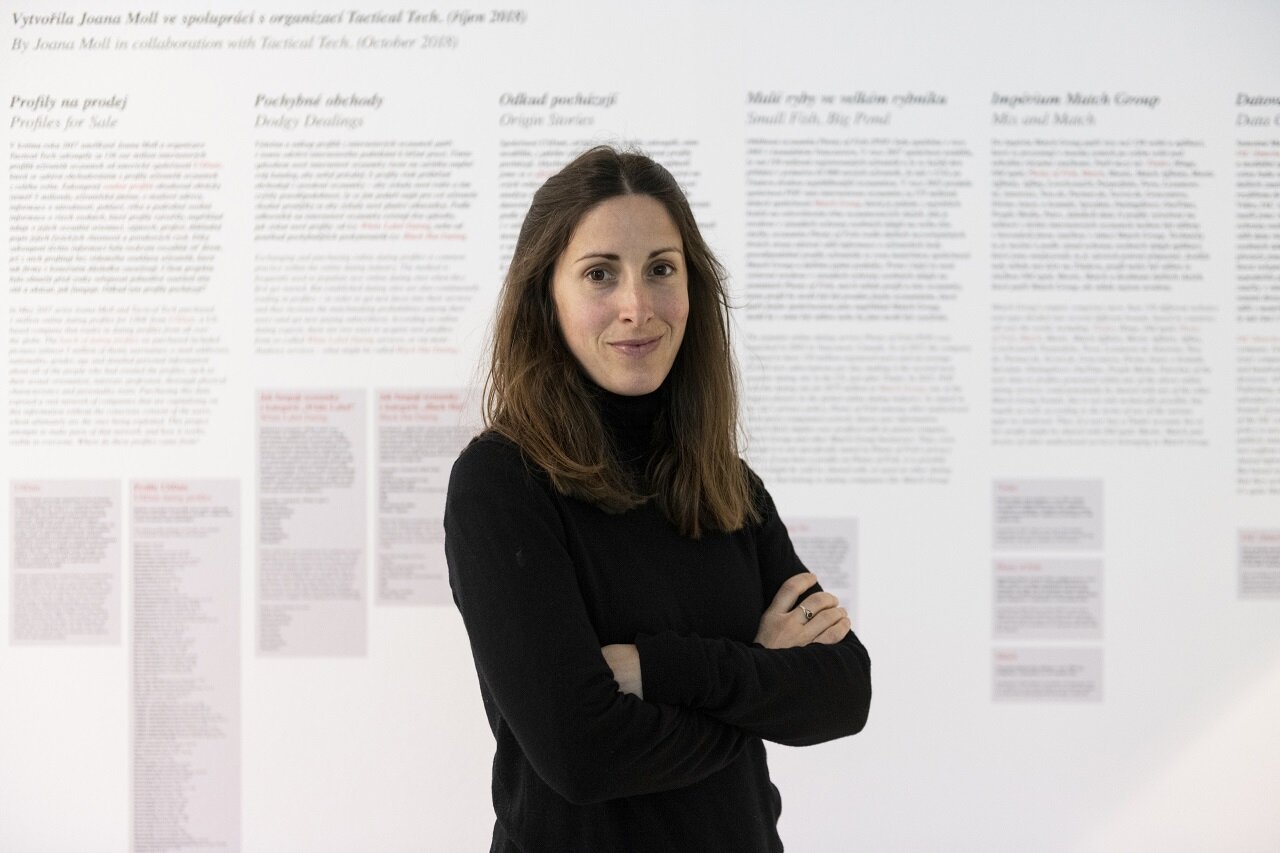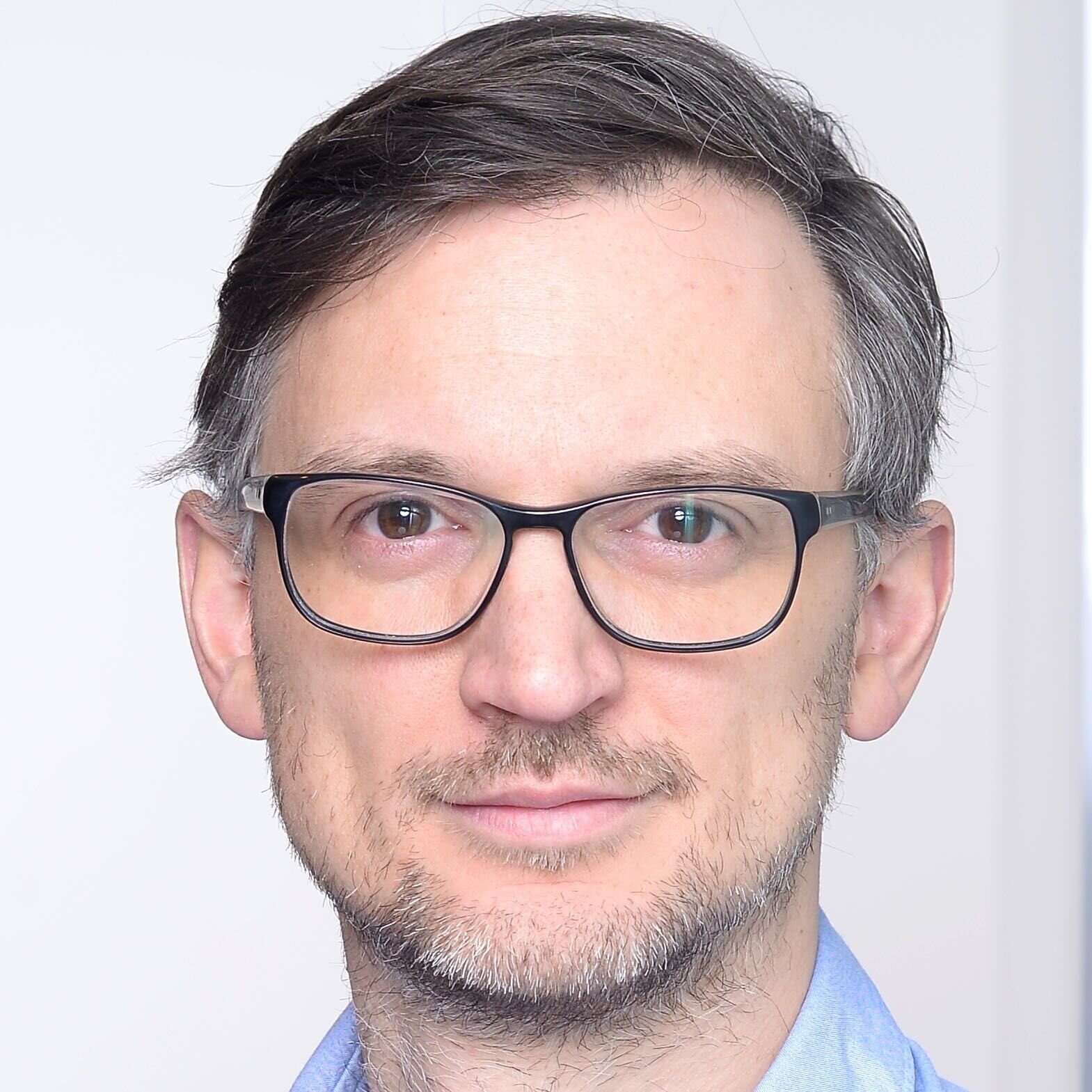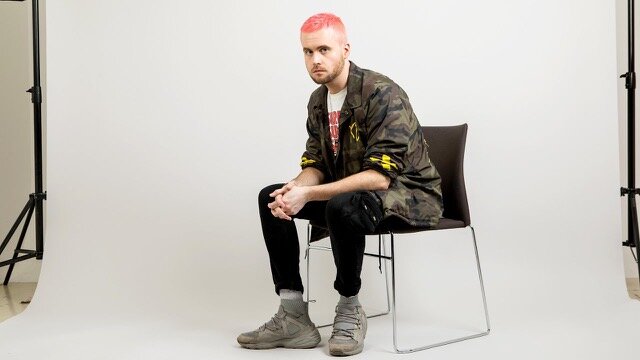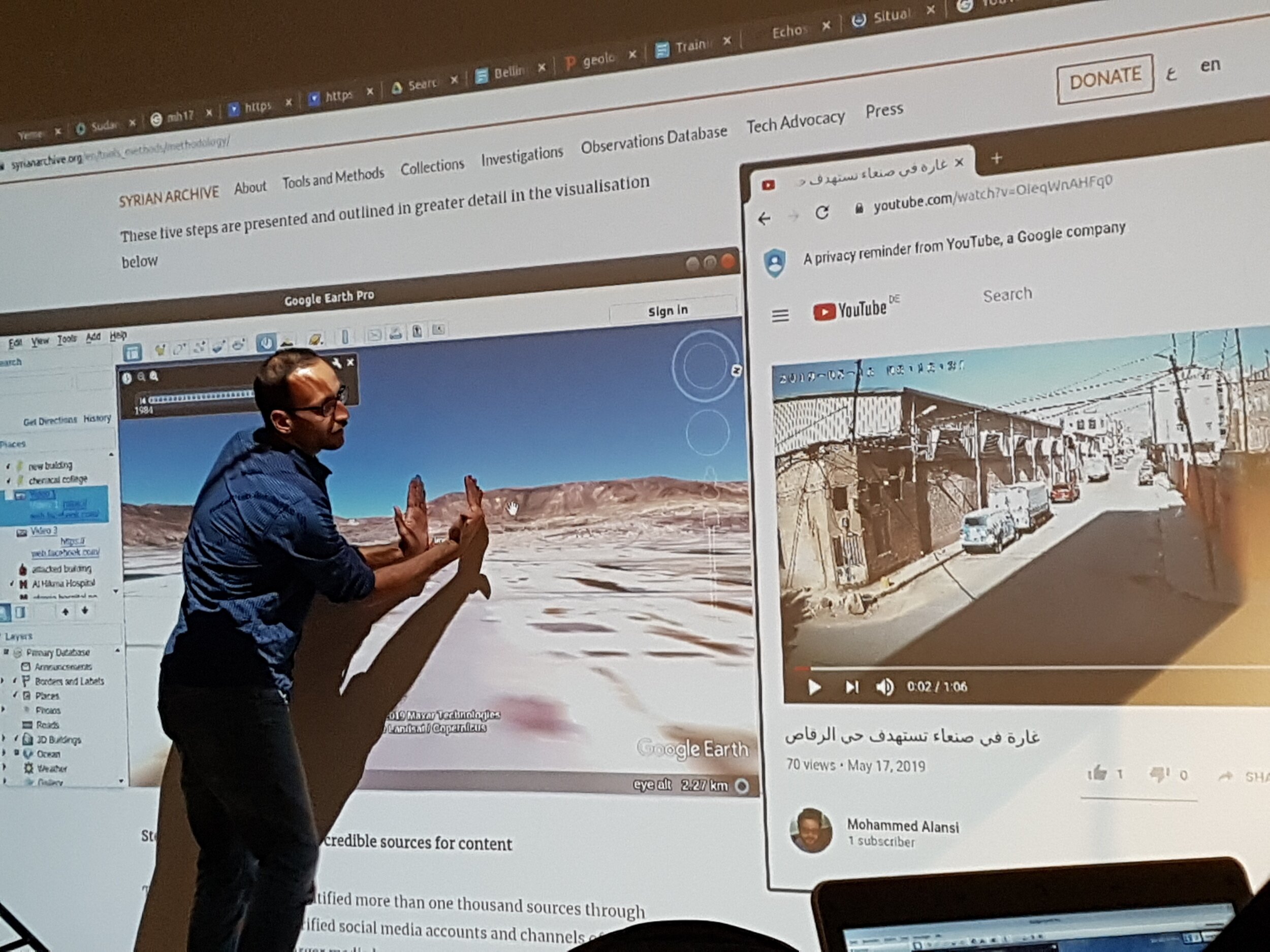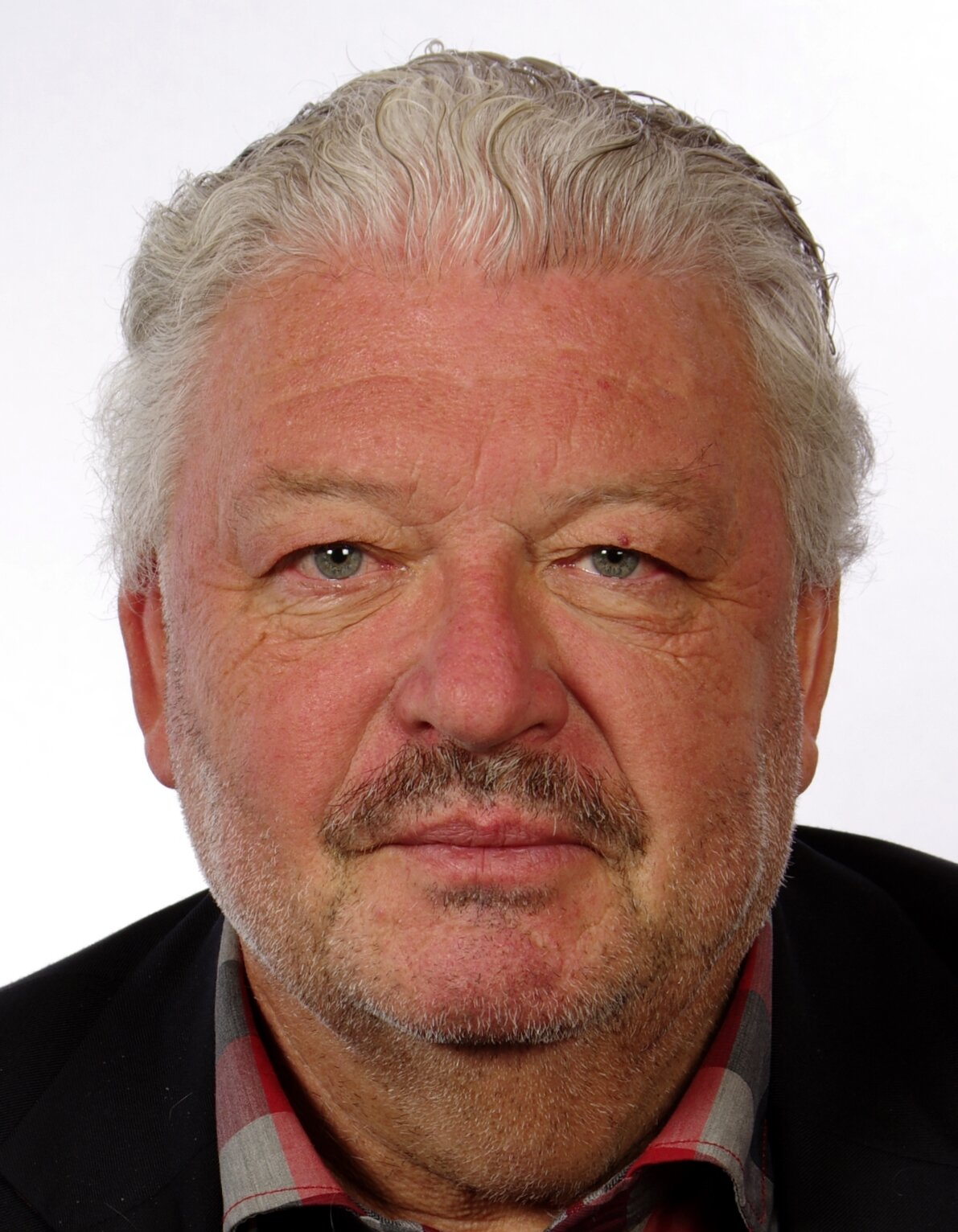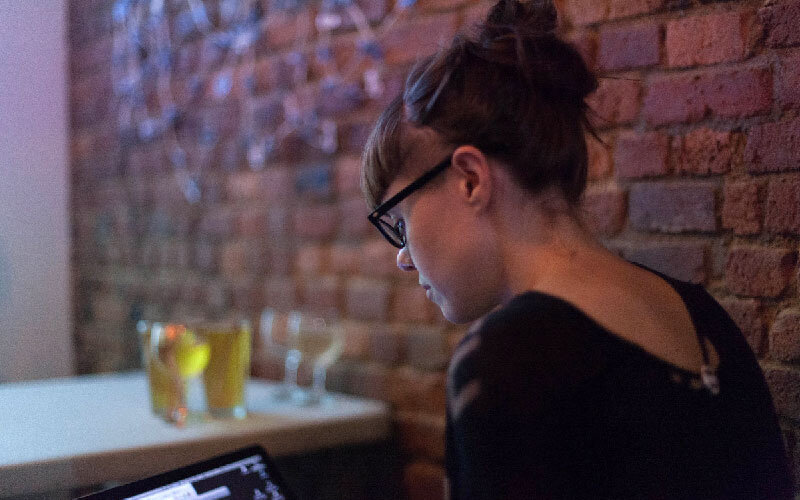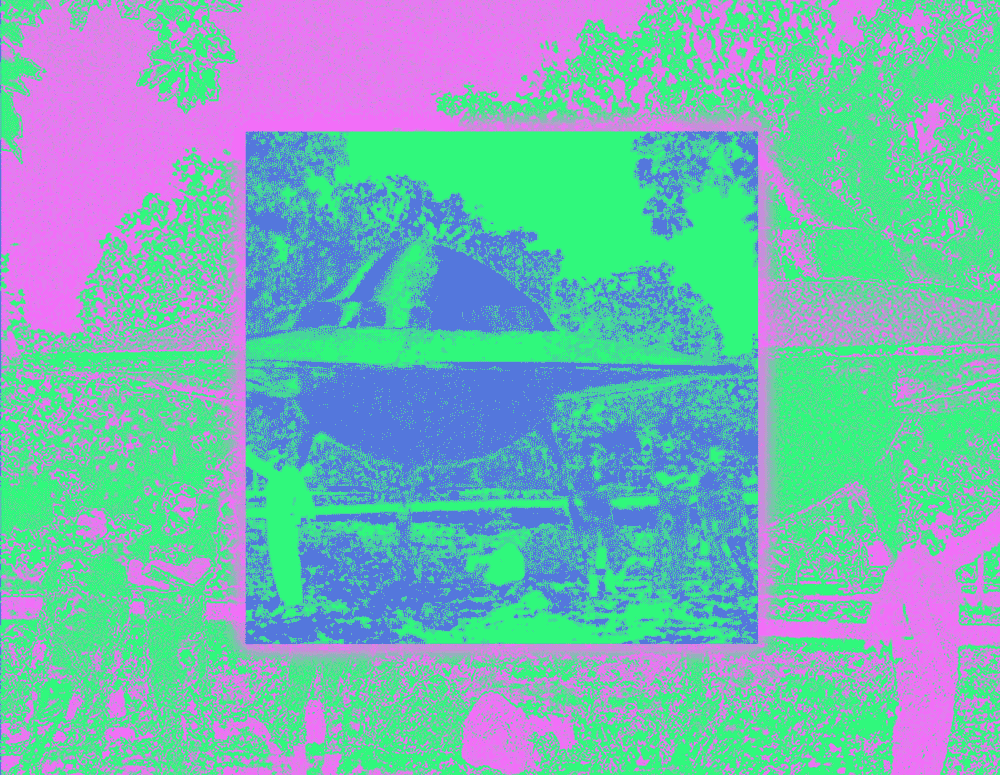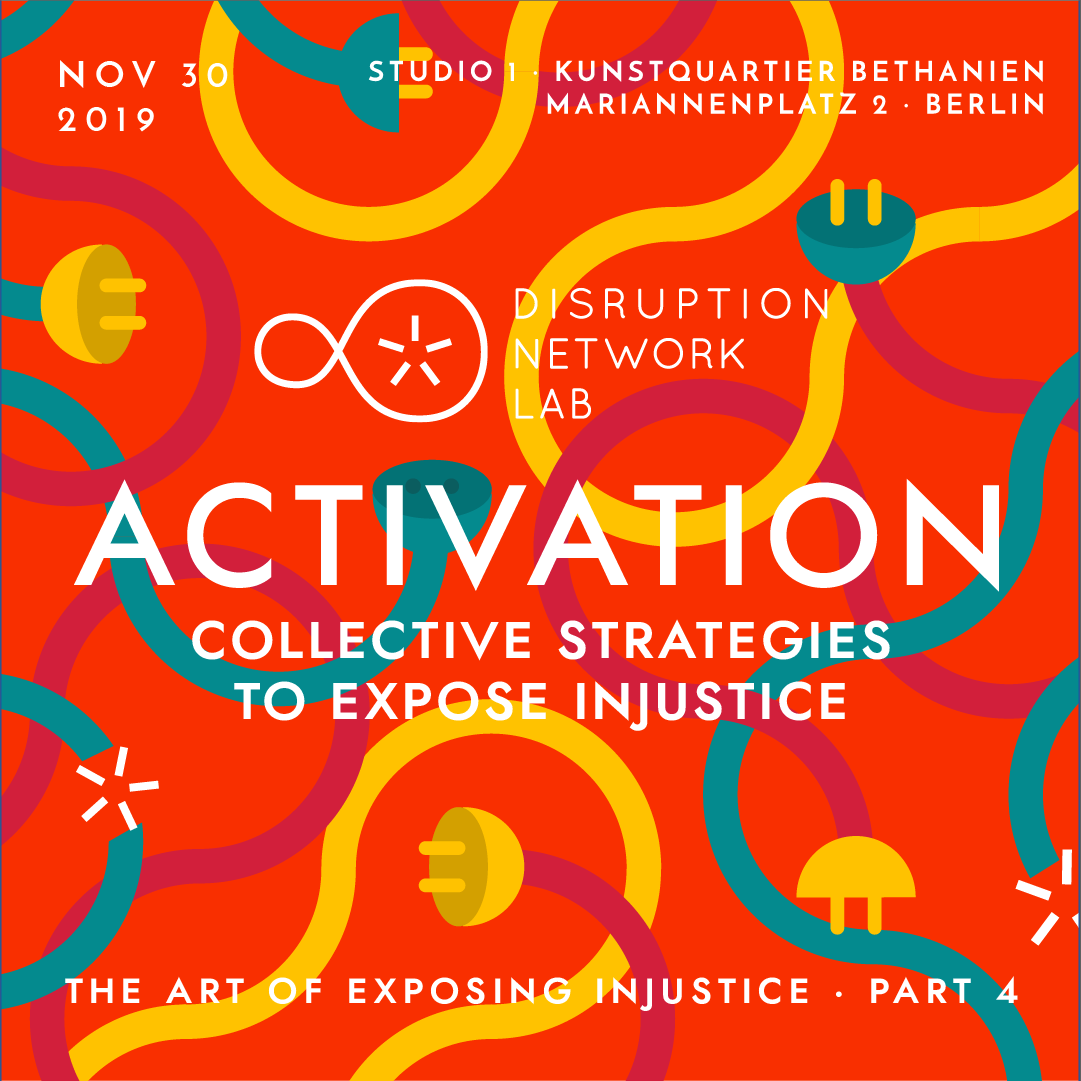#dnl18 #ACTIVATIONdnl · Berlin · NOVEMBER 30 · 2019:
ACTIVATION:
Collective Strategies to Expose Injustice
The Art of Exposing Injustice - Part 4
Gathering the community around the Disruption Network Lab to share collective approaches and tools for activating social, political and cultural change
Curated by LIEKE PLOEGER. In cooperation with Transparency International
The 18th conference of the Disruption Network Lab
November 30 2019.
Location: Studio 1, Kunstquartier Bethanien, Mariannenplatz 2, 10997 Berlin.
Partner Venues: Kunstraum Kreuzberg/Bethanien, STATE Studio, ACUD macht neu.
Curated by Lieke Ploeger. In cooperation with: Transparency International.
Funded by: Hauptstadtkulturfonds (Capital Cultural Fund of Berlin), Reva and David Logan Foundation (grant provided by NEO Philanthropy), Checkpoint Charlie Foundation. Supported [in part] by a grant from the Open Society Initiative for Europe within the Open Society Foundations. In partnership with: Friedrich Ebert Stiftung.
Part of Re-Imagine Europe, co-funded by the Creative Europe programme of the European Union. Re-Imagine Europe is initiated by Sonic Acts (NL) and coordinated by Paradiso (NL) in collaboration with Elevate Festival (AT), Lighthouse (UK), Ina GRM (FR), Kontejner (HR), Landmark / Bergen Kunsthall (NO), A4 (SK), Disruption Network Lab (DE) and Ràdio Web MACBA (ES).
In collaboration with: Transparency International Deutschland e. V., Hangar, The Syrian Archive, Radical Networks
Communication Partners: Sinnwerkstatt, Furtherfield. Media partner: Exberliner.
In English language.
1-Day Ticket: 5€ (available online or at the venue)
1-Day Solidarity-Ticket: 3€ (available online or at the venue)
Disruption Network Lab aims for an accessible and inclusive conference by providing a discounted solidarity ticket.
Workshop Ticket: free entrance, but registration required as spots are limited.
SCHEDULE
Saturday, November 30 · 2019
Workshops
11:00 - 14:00 WORKSHOP: THE INTERFACE, DECONSTRUCTED
Joana Moll (Artist and Researcher, ES).
Location: Disruption Network Lab e. V., Treptowerstr. 23, 12059 Berlin
12:00 - 13:30 WORKSHOP: HOW TO PERFORM AN ARCHIVE
Jasmina Metwaly (Artist and Filmmaker, EG/PL).
Location: Studio 1, Kunstquartier Bethanien, Mariannenplatz 2, 10997 Berlin.
Conference
15:30 - Doors open
16:00 – INTRO
Tatiana Bazzichelli (Artistic Director & Founder, Disruption Network Lab, IT/DE), Lieke Ploeger (Community Director, Disruption Network Lab, NL/DE) & Nada Bakr (Project and Community Manager, Disruption Network Lab, EG/DE).
16:10 – 17:00 – CONVERSATION
UNTANGLING COMPLEXITY: Working on Anti-Corruption From the International to the Local Level
Max Heywood (Transparency International Global Outreach and Advocacy Coordinator, UK/DE) and Stephan Ohme (Lawyer and Financial Expert, Transparency International Deutschland e. V., DE).
17:00 – 17:25 – SHORT FILM SCREENING: PINK HAIR WHISTLEBLOWER
Directed by Marc Silver (UK, 2018, 25 mins), featuring Christopher Wylie (Cambridge Analytica Whistleblower, CA/UK). In English language. Trailer: https://vimeo.com/322376240.
17:40 – 18:25 – ARTIST TALK
AN AUTOPSY OF ONLINE LOVE, LABOUR, SURVEILLANCE AND ELECTRICITY/ENERGY
Joana Moll (Artist and Researcher, ES) in conversation with Tatiana Bazzichelli (Founding Director, Disruption Network Lab, IT/DE).
18:25 – 19:20 – CONVERSATION
ARCHIVES OF EVIDENCE: Archives as Collective Memory and Source of Evidence
Hadi Al Khatib (Founder and Director, The Syrian Archive, SY/DE) and Jasmina Metwaly (Artist and Filmmaker, EG/PL).
19:35 – 20:30 – CONVERSATION
ALGORITHMIC BIAS: AI Traps and Possible Escapes
Caroline Sinders (Machine Learning Designer/User Researcher, Artist, Digital Anthropologist, USA/DE) and Sarah Grant (Media Artist and Educator, Radical Networks, USA/DE) in conversation with Ruth Catlow (Co-Founder and Co-Artistic Director, Furtherfield, UK).
ACTIVATION:
Collective Strategies to Expose Injustice
The Art of Exposing Injustice - Part 4
ACTIVATION gathers the community around the Disruption Network Lab to share collective approaches and tools for activating social, political and cultural change.
In our closing community gathering of the year, we focus on extending and connecting our programme and network with social and cultural initiatives active in both Berlin and abroad, highlighting different ways of possible direct participation and engagement with the topics we discussed in our 2019 conference program ‘The Art of Exposing Injustice’:
The inner mechanisms of the financial system, and the crime, corruption and wrongdoing hidden by secretive offshore companies (DARK HAVENS: Confronting Hidden Money and Power, April 2019)
How AI & algorithms reinforce prejudices and biases of its human creators and societies, and how to fight discrimination (AI TRAPS: Automating Discrimination, June 2019)
The investigative impact of grassroots communities and citizens to expose injustice, corruption and power asymmetries (CITIZENS OF EVIDENCE: Independent Investigations for Change, September 2019)
Our community gathering brings together the different communities, networks and initiatives that worked with us over the course of the year through our Activation community program, as well as additional speakers, and invites you to join them in a collective discussion on the possible ways that we can work together on social, political and cultural change.
The Activation program opens with workshops in the morning and continues with a documentary film screening followed by open conversations in the afternoon. We invite activists, artists, Berlin-based communities and initiatives, hackers, researchers and everyone interested in our research and activities to join our closing gathering of the year, to share collective strategies and tools to expose injustice, meet others working on alternative ways of intervening in society and discover ways to connect with our network and activities in the future.
Curated by Lieke Ploeger.
The Disruption Network Lab series The Art of Exposing Injustice is developed in cooperation with the Berlin-based International Secretariat of Transparency International, the global coalition against corruption, celebrating this year its 25th year jubilee.
FULL PROGRAM
Saturday, November 30 · 2019
Workshops
11:00 - 14:00 WORKSHOP: THE INTERFACE, DECONSTRUCTED
Far from being a purely immaterial entity, the Internet is an extremely complex physical structure composed by a massive number of actors that have a direct and deep impact in every aspect of our daily lives. Algorithms unfold as key agents in the construction and operation of surveillance capitalism, becoming powerful autonomous governance entities invisible to the eyes of the global citizenship. Despite of their crucial role in processing and executing most of our society's daily individual and collective transactions, we have very little information on the design and functionality of these ubiquitous intangible agents and about the deep social, economical and emotional implications that their actions have over our day to day lives.
Thus, this workshop seeks to critically reveal, connect and understand the complex network of agents that come together to configure the Internet and the surveillance capitalism ecosystem, by forensically analysing the way governmental agencies and corporations take over networks and algorithms in order to surveil, profile and control millions of citizens on a regular basis, along with the heavy environmental impact of such processes.
With Joana Moll (Artist and Researcher, ES).
Location: Disruption Network Lab e. V., Treptowerstr. 23, 12059 Berlin
Registration:
The workshop is free of admission and the number of seats is limited to 15. Booking is essential.
Registration: https://pretix.eu/disruptionlab/activation/
You will need to bring your laptop
Please make sure to attend the workshop if you confirm your availability. If you can't attend please inform us so we give your place to another participant from the wait-list.
12:00 - 13:30 WORKSHOP: HOW TO PERFORM AN ARCHIVE
Based on her research and the work on 858.ma archive Jasmina Metwaly will lead a session on storytelling. Each participant will be asked to create a narrative stemming from a series of videos, documents, images and sounds. This exercise will allow us collectively look into different modes of seeing and participating in a (political) event.
How through the understanding of our bodies and tools we use that often act as extensions of ourselves - do we partake in something larger?
With Jasmina Metwaly (Artist and Filmmaker, EG/PL).
Location: Studio 1, Kunstquartier Bethanien, Mariannenplatz 2, 10997 Berlin.
Registration:
The workshop is free of admission and the number of seats is limited to 17. Booking is essential.
Registration: https://pretix.eu/disruptionlab/activation/
You will need to bring your laptop
Please make sure to attend the workshop if you confirm your availability. If you can't attend please inform us so we give your place to another participant from the wait-list.
Conference
15:30 - Doors open
16:00 – INTRO
Tatiana Bazzichelli (Artistic Director & Founder, Disruption Network Lab, IT/DE), Lieke Ploeger (Community Director, Disruption Network Lab, NL/DE) & Nada Bakr (Project and Community Manager, Disruption Network Lab, EG/DE).
16:10 – 17:00 – CONVERSATION
UNTANGLING COMPLEXITY: Working on Anti-Corruption From the International to the Local Level
Max Heywood (Transparency International Global Outreach and Advocacy Coordinator, UK/DE) and Stephan Ohme (Lawyer and Financial Expert, Transparency International Deutschland e. V., DE).
The offshore financial system, a global network involving not only secretive offshore tax havens, but also financial institutions, systems of law, governments and corporations, is a complex and often hidden system of global economic power. In the fight against corruption, one of the key elements is making such complexity transparent. Through chapters in more than 100 countries and an international secretariat in Berlin, Transparency International works on anti-corruption from the international to the local level. The chapter in Germany, Transparency International Deutschland e. V., organises itself through thematically organized groups to raise public awareness about the harmful consequences of corruption in society. In this panel the speakers will address the different ways their organisations are working together on untangling the hidden complexity of the inner mechanisms of the financial system, and present some of the progress that has been made both internationally and locally.
17:00 – 17:25 – SHORT FILM SCREENING: PINK HAIR WHISTLEBLOWER
Short film directed by Marc Silver (UK, 2018, 25 mins), featuring Christopher Wylie (Cambridge Analytica Whistleblower, CA/UK). In English language. Produced by The Guardian / Bertha / DocSociety.
Trailer: https://vimeo.com/322376240.
Christopher Wylie, the so-called ‘data whistleblower’ who worked for Cambridge Analytica, reveals how, in early 2014, 87 million Facebook users information was taken without authorisation to build a system to profile and target US voters with personalised political advertisements. At the time the company was owned by the hedge fund billionaire Robert Mercer and headed by Donald Trump’s key adviser, Steve Bannon. Using the architecture Wylie helped to engineer, people are perceived as observable, measurable data sets, allowing for the prediction and modification of behaviour. No longer ‘simply’ about privacy, it has the capacity to create an entirely new level of social inequality. This short film acts as a beacon to investigate a system that is on its way to becoming an all encompassing new power structure that we currently know far too little about.
17:40 – 18:25 – ARTIST TALK
AN AUTOPSY OF ONLINE LOVE, LABOUR, SURVEILLANCE AND ELECTRICITY/ENERGY
Joana Moll (Artist and Researcher, ES) in conversation with Tatiana Bazzichelli (Founding Director, Disruption Network Lab, IT/DE).
Our so-called networked society has failed so far to transpose the logic of interconnectedness into our lives. Citizens are becoming increasingly machine-like and dependent on data, threatening the connection between humans and their natural habitats. Although most of our daily transactions are carried out through electronic devices, we know very little of the apparatus that facilitates such interactions, or in other words, about the factory that lies beyond the interface. In this talk, artist Joana Moll will try to trace the connection between interfaces, patriarchy, data, language, business models, free labour, surveillance, CO2 and domesticated electricity. She will specifically go into two of her recent projects, The Dating Brokers and The Hidden Life of an Amazon User, as well as into how she involves community in her work. The Dating Brokers casts light on well established practices in the global online dating ecosystem, which are crucial to its business model but mostly opaque to their users. Dating profiles contain intimate information on users and the over-exploitation and misuse of this data can have dramatic effects on their lives. The Hidden Life of an Amazon User sheds light on Amazon’s often unacknowledged but aggressive exploitation of their users, which is embedded at the core of the so-called internet companies’ business strategies. To put it bluntly, the Amazon user is not just exploited by means of their free labor, but is also forced to assume the energy costs of such exploitation.
18:25 – 19:20 – CONVERSATION
ARCHIVES OF EVIDENCE: Archives as Collective Memory and Source of Evidence
Hadi Al Khatib (Founder and Director, The Syrian Archive, SY/DE) and Jasmina Metwaly (Artist and Filmmaker, EG/PL).
In this panel we focus on the role of archives in the collaborative production of social justice, by connecting two initiatives working on exposing wrongdoing through the means of online archiving. The Syrian Archive is a Syrian-led and initiated collective of human rights activists dedicated to curating visual documentation relating to human rights violations and other crimes committed by all sides during the conflict in Syria with the goal of creating an evidence-based tool for reporting, advocacy and accountability purposes. 858: An Archive of Resistance is an archive containing 858 hours of video material from the 2011 Egyptian revolution, with a focus on street politics, state violence and labour rights. The material has been collected, organised, annotated and cross-indexed by Mosireen (Arabic:,مصرّين, English: We Are Determined), a non-profit media activist collective. How can such collections of visual evidence play a role in revealing injustice, and which issues do they face?
19:35 – 20:30 – CONVERSATION
ALGORITHMIC BIAS: AI Traps and Possible Escapes
Caroline Sinders (Machine Learning Designer/User Researcher, Artist, Digital Anthropologist, USA/DE) and Sarah Grant (Media Artist and Educator, Radical Networks, USA/DE) in conversation with Ruth Catlow (Co-Founder and Co-Artistic Director, Furtherfield, UK).
Algorithms are not neutral and unbiased, but instead often reflect, reinforce and automate the current and historical biases and inequalities of society, such as social, racial and gender prejudices. This panel frames this issue in the context of the work of both speakers, and aims to discuss some possible escapes. In her work, Caroline Sinders focuses on the intersections of natural language processing, artificial intelligence, abuse, online harassment and politics in digital, conversational spaces. She will discuss what an intersectional Feminist AI could look like, and how we could get it. Sarah Grant organises Radical Networks, a community event and arts festival for critical investigations, social justice, and creative experiments in telecommunications. She will go into how the repeated biases and behaviours that we find in Internet and network access could find themselves patterned and spread into AI systems. Together, what new feminisms and new Internets could we imagine?
SPEAKERS
Joana Moll
Artist and Researcher, ES
Twitter: @joana_moll
Joana Moll is a Barcelona-based artist and researcher. Her work critically explores the way post-capitalist narratives affect the alphabetization of machines, humans and ecosystems. Her main research topics include Internet materiality, surveillance, social profiling and interfaces. She has lectured, performed and exhibited her work in different museums, art centers, universities, festivals and publications around the world. Furthermore she is the co-founder of the Critical Interface Politics Research Group at HANGAR [Barcelona] and co-founder of The Institute for the Advancement of Popular Automatisms. She is currently a visiting lecturer at Universität Potsdam and Escola Superior d'Art de Vic [Barcelona].
Jasmina Metwaly
Artist and Filmmaker, EG/PL
Twitter: @benthanaa
Born to an Egyptian father and a Polish mother, Jasmina Metwaly is a Cairo-Berlin-based artist and filmmaker, and co-founder of Mosireen collective. She works in video and film, and has recently started drawing again. She likes to work with people and their histories, within different forms of text: scripts, drawings, lectures, manuals and images. Rooted in performance and theatre, her works focus on process-based practices, that have a social effect through which generates tension between participants and audiences. Taking a position of an onlooker/ storyteller, she investigates the ways in which images transgress, how the role of the person behind the camera changes with stories, and how these impact collective memory. She is interested in the methodology itself, how images are collected and archived and how they can take on new meanings when de-constructed from their primal intention. She is interested in how stories create stories blurring the preconceived boundaries of documentation and fiction.
Max Heywood
Transparency International Global Outreach and Advocacy Coordinator, UK/DE
Twitter: @maxheywood
Max Heywood currently leads the Policy Team at the International Secretariat of Transparency International, a global coalition of civil society organizations with the shared goal of fighting corruption. His main area of focus is anti-money laundering policy. Max previously worked as an economic analyst in Argentina, and holds degrees in Economics and Public Policy.
Stephan Ohme
Lawyer & Financial Expert, Transparency International Deutschland e. V., DE
Twitter: @transparency_de
Stephan Ohme is involved with Transparency International Deutschland e. V. as an expert on finances, currently focusing on anti-money laundering and illicit financial flows. He is a lawyer by profession with working experience in international development cooperation in Turkey, South Africa and Jordan, where he led UN negotiations on financing of sustainable development on behalf of the German government.
Caroline Sinders
Machine Learning Designer/User Researcher, Artist, Digital Anthropologist, USA/DE
Twitter: @carolinesinders
Caroline Sinders is a machine learning design researcher and artist. For the past few years, she has been focusing on the intersections of natural language processing, artificial intelligence, abuse, online harassment and politics in digital, conversational spaces. Caroline is the founder of Convocation Design + Research, a design and research agency focusing on the intersections of machine learning, user research, designing for public good, and solving communication difficult problems. As a designer and researcher, she's worked with groups like Amnesty International, Intel, IBM Watson, the Wikimedia Foundation as well as others.
Sarah Grant
Media Artist and Educator, Radical Networks, USA/DE
Twitter: @woolypixel // @radnetworks
Sarah Grant is an American media artist and educator based in Berlin. She holds a Bachelors of Arts in Fine Art from UC Davis and a Masters of Professional Studies in Media Arts from New York University's Interactive Telecommunications Program. She is a former Research Fellow at the Tow Center for Journalism at Columbia, Adjunct Professor at NYU Polytechnic in Digital Media, and Artist-in-Residence at the Eyebeam Art and Technology Center. With a focus on radio art and computer networking, she researches and develops open source software, artworks as educational tools, and workshops that demystify computer networking technology. She organizes the Radical Networks conference in New York and Berlin, a community event and arts festival for critical investigations, social justice, and creative experiments in telecommunications.
Ruth Catlow
Co-Founder and Co-Artistic Director, Furtherfield, UK
Twitter: @furtherfield
Catlow is an artist, and co-founder and co-director, with Marc Garrett, of Furtherfield. Furtherfield is the UK's leading organisation for art, labs, & debates around critical questions in art and technology since 1997. Catlow co-curates programmes developed to make network cultures more feelable and accessible to more diverse people. Exhibitions and labs tour nationally and internationally, strengthening the expressive and emancipatory potential of digital technology.
Hadi Al Khatib
Founder and Director, The Syrian Archive, SY/DE
Twitter: @Hadi_alkhatib // @syrian_archive
Hadi Al Khatib is the Founder and Director of the Syrian Archive. He has been working since 2011 on collecting, verifying, and investigating citizen-generated data as evidence of human rights violations in order to expose and draw attention to human rights violations committed by all sides in the Syrian conflict, and to make sure that journalists and lawyers are able to use the verified data for their investigations and criminal case building. Hadi has previously worked with Tactical Technology Collective for the last 5 years to support journalists and news agencies in securing their data, devices and communications online. He has also worked as a part-time open source investigator with Human Rights Watch and Bellingcat. He is a fellow at the Centre for Internet and Human Rights, and is currently teaching a Masters of Arts course for the Raumstrategien program at the Kunsthochschule Berlin-Weissensee.
DOCUMENTARY DIRECTOR
Marc Silver
Filmmaker and Director, UK
Twitter: @marcsilverms
Marc Silver is an award winning filmmaker and director of the Oscar shortlisted and Emmy nominated feature doc, 3 ½ Minutes, Ten Bullets. It premiered at the Sundance Festival 2015 winning the U.S. Documentary Special Jury Award for Social Impact. His first feature length film Who is Dayani Cristal? premiered at the Sundance Festival 2013, where it won the Cinematography Award: World Cinema Documentary and the Amnesty International Best Documentary Award 2014. In 2017 his third feature length film To End A War about the peace process with the FARC was released in Colombia. Marc’s most recent work was for the Guardian on the Cambridge Analytica / Facebook data breach story making the first film about whistleblower Christopher Wylie. From 2018-20 Marc has been embedded inside Amnesty International researching ideas related to future technologies and their impact on human rights. The work has led to a short film about the profound gene editing tool CRIPSR, as well as a series of ideas with Shoshana Zuboff, author of The Age Of Surveillance Capitalism. He is working on a feature length film about Ayahuasca set for completion in 2020.


